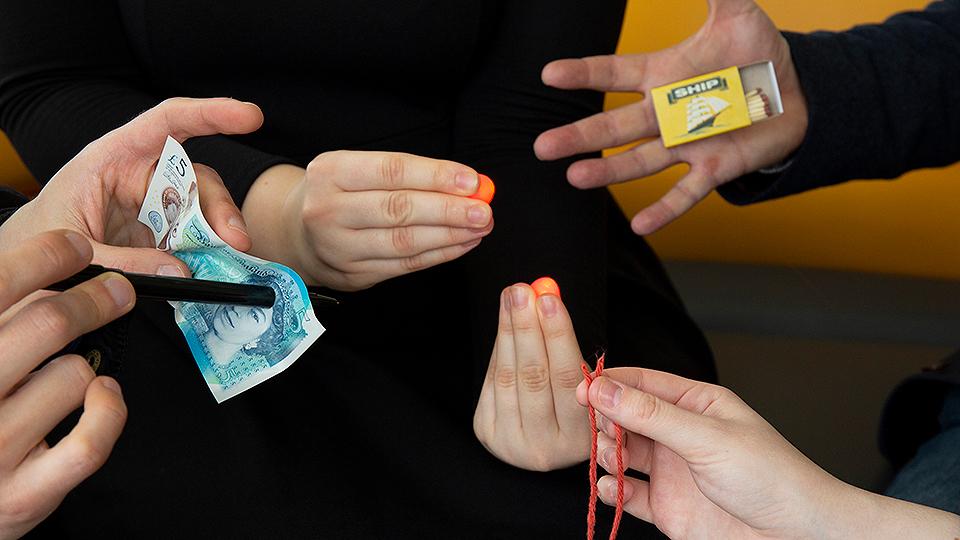Teaching students magic improves their wellbeing
Primary page content
Learning to perform magic tricks can help students feel more confident and connected with each other, research from Goldsmiths, University of London has shown.

The finding is from an initiative where first-year psychology undergraduates at Goldsmiths are taught a variety of magic tricks to perform for their peers. Afterwards, the student ‘magicians’ reported the experience increased their confidence and made them less worried about speaking out.
The study from the Goldsmiths MAGIC (Mind Attention & General Illusory Cognition) Lab builds on previous scientific research which has shown that watching and performing magic tricks can enhance people’s wellbeing.
Dr Gustav Kuhn, Reader in Psychology at Goldsmiths and head of the MAGIC Lab, said: “We know that starting at university trying to make new friends can be difficult so we provide a range of support for our students. We wondered if lessons in performing magic could be part of that, helping them to engage with each other and develop key soft skills and resilience that helps them make the most of the degree.”
Steve Bagienski, a PhD researcher at the Goldsmiths MAGIC Lab who led the work said: “Students who took part in the magic sessions reported they felt better about themselves and more connected to both the department and the university than those in our control group.”